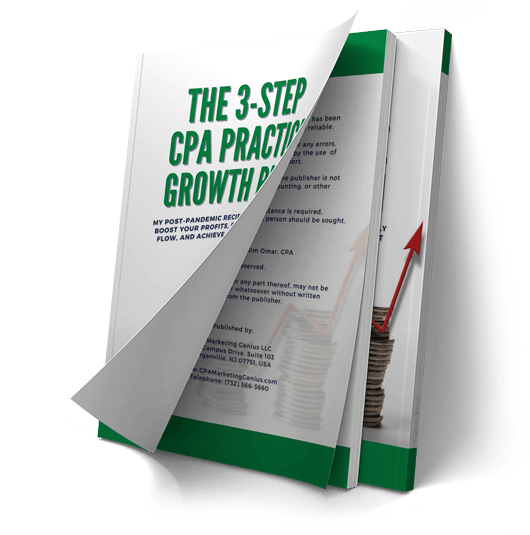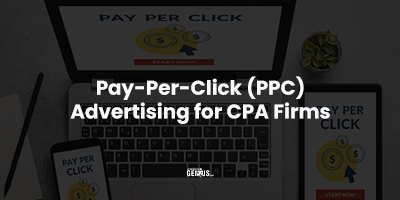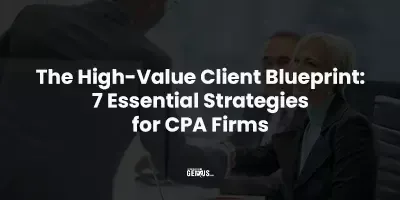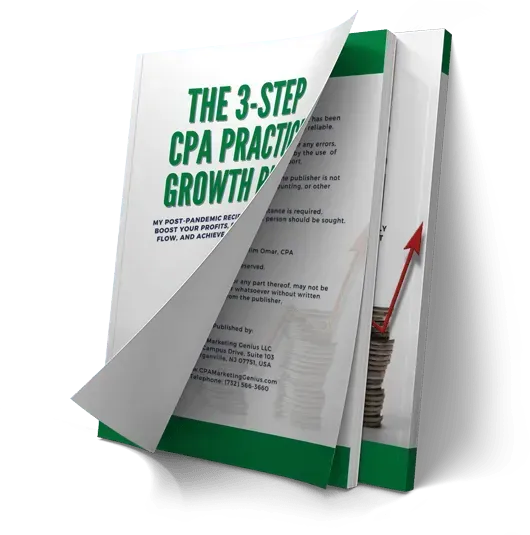Partnering in Your Practice: A Handshake Isn’t Enough

Thinking about taking on a partner in your CPA practice?
It’s a big step, and not one to be taken lightly. A business partnership isn’t like a friendship. If you go through rocky territory with a buddy, you can decide to distance yourself from that person until cooler heads prevail.
It’s even easier to put space between yourself and a mere acquaintance if you sense friction or discord. But when you have a business partner, you are attached to that person. You’ll have to interact with, make decisions with and run a company alongside him or her, at least until that legal partnership is officially dissolved.
However, partnerships can be a beautiful thing, too. Without being able to see into the future, the smartest practitioners enter partnerships optimistically but intelligently. They know that minimizing the possibility of disaster and maximizing chances of success come down to one smart move from the beginning: having a formal partnership agreement.
You understand that finding the right business partner is essential but the bigger question to answer is if you even need one.
I f you ever feel like you are having a lot of success and growth in one section of your business, but completely lacking the knowledge and skills in another, a business partner would be able to pick up the slack in that other area. Or maybe you want a business partner because you just have WAY too many decisions to make. Bringing on a partner you trust will allow you to divide and conquer, allowing you both to give your full attention to the things that need it.
Although, a handshake simply isn’t enough, no matter how peachy your current relationship with a soon-to-be partner.
Be sure to use a written partnership agreement created with the help of an attorney.
A well-composed agreement can anticipate likely snags down the road and make resolving them much easier, because all partners will know exactly what to do. When the agreement is crafted, you and your partner(s) are positioned to have certain discussions and make certain decisions upfront about how potential bumps in the road will be handled, before they have a chance to destroy your practice.

Financial Contribution. Partners don’t always put in equal amounts of money. Be sure your agreement spells out exactly how much startup capital each partner contributes.
Division of Work. What will each partner actually do from day-to-day? Who’s in charge of what? Iron this out in advance, as it’s one of the most common areas of disagreement.
Definition of Income. How will the partners draw income from practice profits? Will the partners draw salaries? If so, how much, and how often? What percentage of profits will be fed back into the firm?
Definition of Property. Partners bring different things to value to a partnership. Sometimes it’s physical and tangible, such as a building. But real estate isn’t the only kind of property. There are also things like client lists, and intellectual property such as process designs and computer applications. Make sure your agreement spells out who brought what to the partnership.
Use of Property. This item depends on the kind of property partners bring to the practice. For example, does the person bringing the client list agree to share it with the other partner(s)? If a partner brings some type of intellectual property, can other partners make changes to it?
Bank Accounts, Purchases and Credit. Make these decisions in advance and outline them in your agreement: who will have signing privileges on bank accounts? Will the practice be using a line of credit? Does a partner require consent from other partners before making a purchase?
Death & Disability. No one wants to think about this, but it’s important to consider how the partners will carry on business in the event that a partner dies or is unable to work. For example, you can include a buyout clause in your agreement, or draw up a separate buyout agreement.
Dispute Resolution. Uh-oh. There’s a problem. But you guys are all friends, right? You’ll work it out. That’s probably true. However, sometimes people disagree and come to an impasse, bringing business to a grinding halt. Don’t let that happen to you. Decide now how you’ll resolve any future disputes. For example, you might agree now to use a mediator or a business advisory board.
Someone Wants Out. What if one partner decides to exit the partnership? This is a situation that will be covered by your buyout agreement. Your agreement should address whether or not a departing partner must be bought out, what price will be paid and how, and who can buy in.
Selling the Practice. Someday you may want to sell the practice, and that’s when you might face friction around valuation and profit sharing. For example, one partner may feel they’ve contributed more or worked harder and feels entitled to a larger share. Iron out your exit strategy in the agreement – how, how much, etc.
You love your future partner now, but in a business, a million things can happen to put even the best of friends on opposing sides of an issue. By having the right conversations now and outlining the above issues in a partnership agreement, you’ll be more likely to enjoy smooth sailing and pleasing profits for years to come.

New Paragraph
Salim Omar
Salim is a straight-talking CPA with 30+ years of entrepreneurial and accounting experience. His professional background includes experience as a former Chief Financial Officer and, for the last twenty-five years, as a serial 7-Figure entrepreneur.

Salim Omar
Salim is a straight-talking CPA with 30+ years of entrepreneurial and accounting experience. His professional background includes experience as a former Chief Financial Officer and, for the last twenty-five years, as a serial 7-Figure entrepreneur.

Salim Omar
Salim is a straight-talking CPA with 30+ years of entrepreneurial and accounting experience. His professional background includes experience as a former Chief Financial Officer and, for the last twenty-five years, as a serial 7-Figure entrepreneur.

Salim Omar
Salim is a straight-talking CPA with 30+ years of entrepreneurial and accounting experience. His professional background includes experience as a former Chief Financial Officer and, for the last twenty-five years, as a serial 7-Figure entrepreneur.

Salim Omar
Salim is a straight-talking CPA with 30+ years of entrepreneurial and accounting experience. His professional background includes experience as a former Chief Financial Officer and, for the last twenty-five years, as a serial 7-Figure entrepreneur.

Salim Omar
Salim is a straight-talking CPA with 30+ years of entrepreneurial and accounting experience. His professional background includes experience as a former Chief Financial Officer and, for the last twenty-five years, as a serial 7-Figure entrepreneur.

Salim Omar
Salim is a straight-talking CPA with 30+ years of entrepreneurial and accounting experience. His professional background includes experience as a former Chief Financial Officer and, for the last twenty-five years, as a serial 7-Figure entrepreneur.

Salim Omar
Salim is a straight-talking CPA with 30+ years of entrepreneurial and accounting experience. His professional background includes experience as a former Chief Financial Officer and, for the last twenty-five years, as a serial 7-Figure entrepreneur.

Salim Omar
Salim is a straight-talking CPA with 30+ years of entrepreneurial and accounting experience. His professional background includes experience as a former Chief Financial Officer and, for the last twenty-five years, as a serial 7-Figure entrepreneur.

Salim Omar
Salim is a straight-talking CPA with 30+ years of entrepreneurial and accounting experience. His professional background includes experience as a former Chief Financial Officer and, for the last twenty-five years, as a serial 7-Figure entrepreneur.












